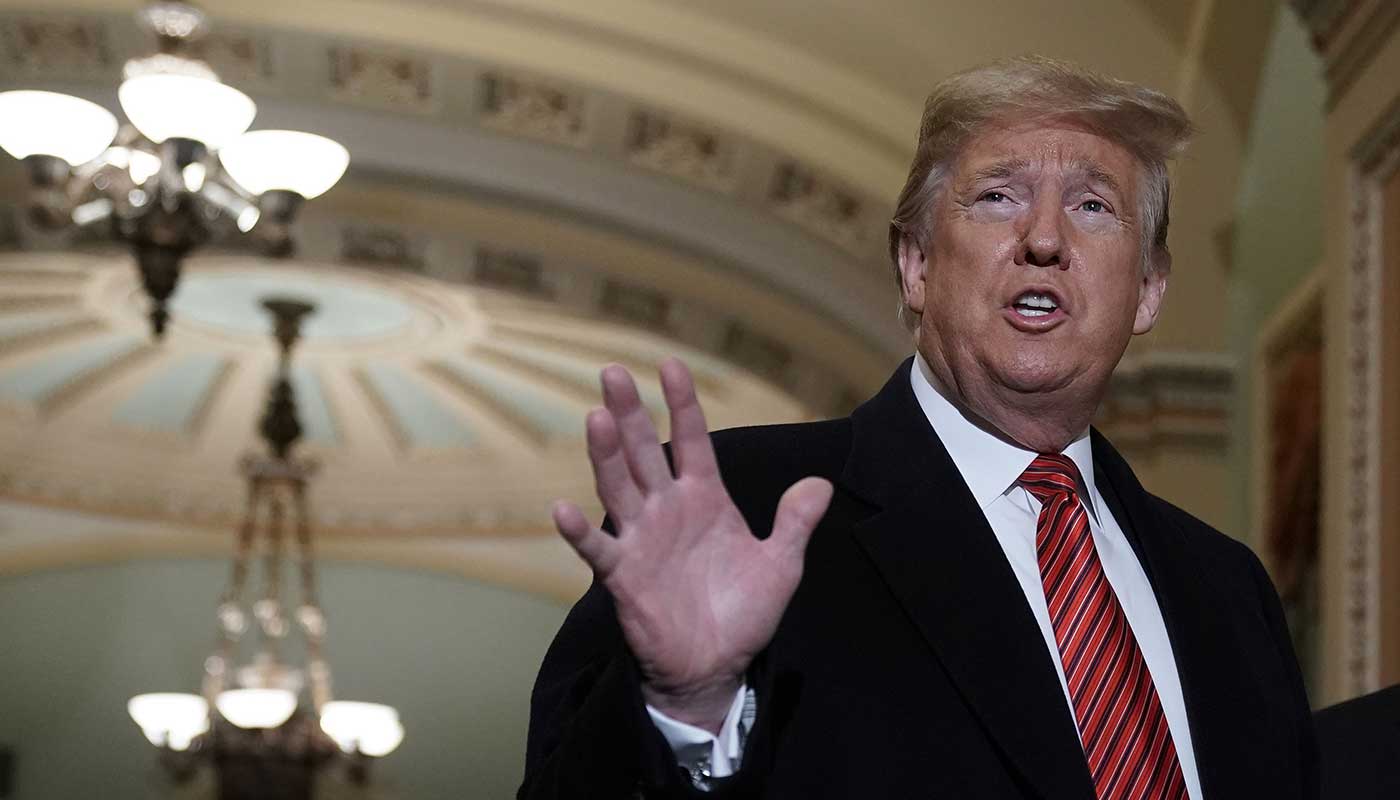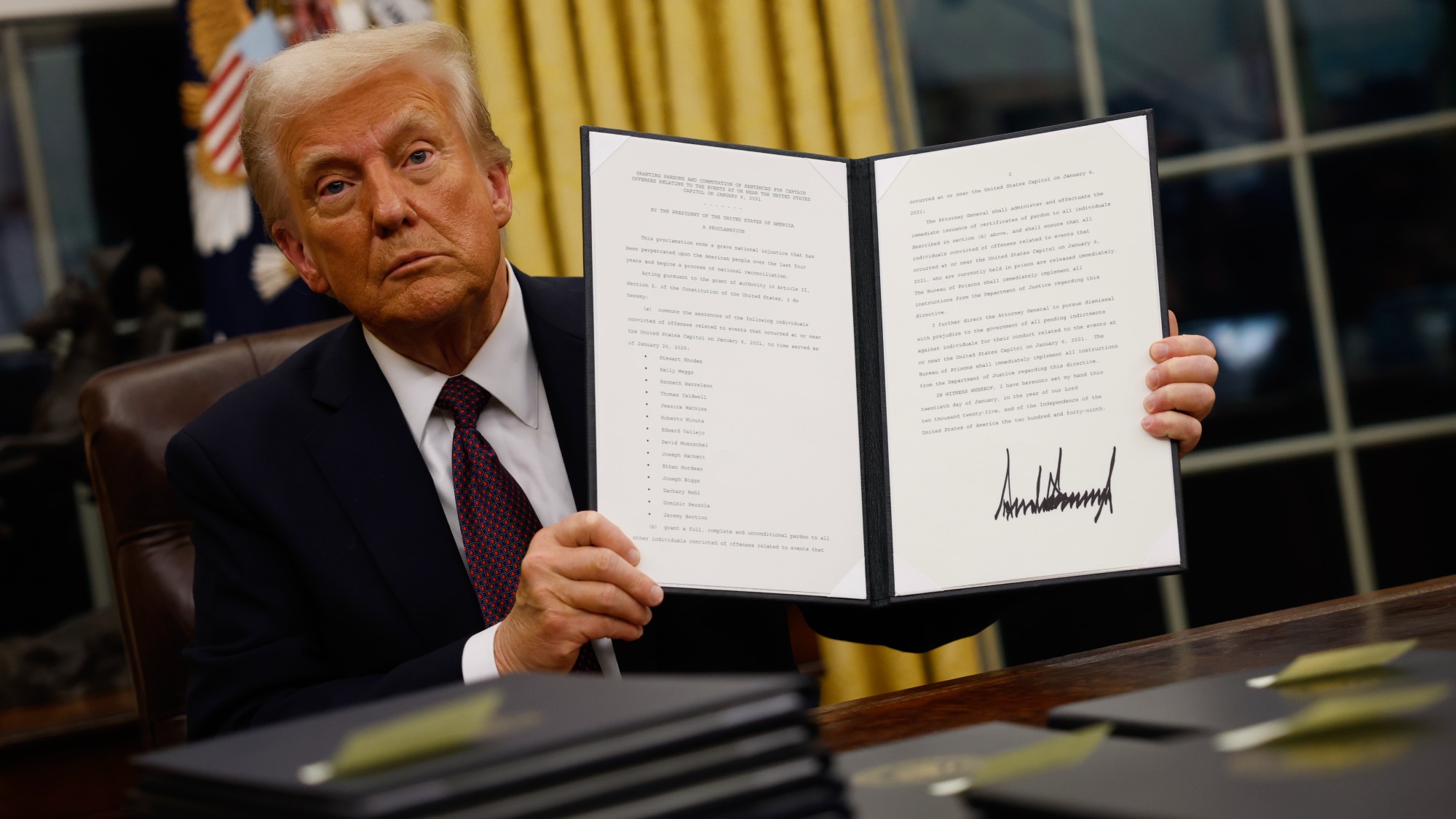What is a national emergency - and what powers will it give Donald Trump?
US president will invoke 1976 Act to access federal funding for his border wall without congressional approval

A free daily email with the biggest news stories of the day – and the best features from TheWeek.com
You are now subscribed
Your newsletter sign-up was successful
President Donald Trump is set to declare a “national emergency” at the US-Mexico border in order to invoke special powers to fund his proposed $5.7bn (£4.44bn) border wall.
Following weeks of deadlock, lawmakers from both parties agreed a deal earlier this week that reportedly includes $1.375bn (£1.07bn) for the controversial project, in order to avert a second government shutdown.
However, the White House confirmed yesterday that although Trump will sign the spending Bill, he will also try to put the nation on emergency status - which would allow him to bypass Congress to get more cash for his wall.
The Week
Escape your echo chamber. Get the facts behind the news, plus analysis from multiple perspectives.

Sign up for The Week's Free Newsletters
From our morning news briefing to a weekly Good News Newsletter, get the best of The Week delivered directly to your inbox.
From our morning news briefing to a weekly Good News Newsletter, get the best of The Week delivered directly to your inbox.
So, what are the powers available to a president during a “national emergency” - and why are even fellow Republican Party members panicking over Trump’s declaration?
What is a national emergency?
The first ever national emergency was declared by President Woodrow Wilson in 1917 over a shortage of maritime transport affecting US exports, but the status was not formalised until almost 60 years later.
The 1976 National Emergencies Act (NEA) gives the executive special powers to act without congressional approval in order to counter a specific threat.
A free daily email with the biggest news stories of the day – and the best features from TheWeek.com
However, declaring a national emergency “does not provide any specific emergency authority on its own, but relies on emergency authorities provided in other statutes”, says the Association of State and Territorial Health Officials.
The president must specify the emergency statues being invoked to address the named threat.
A draft of Trump’s proclamation seen by CNN indicates that he will cite a provision in the US Code that “would give the president authority to pull from military construction funds and civil works projects, like infrastructure repair projects”, to fund the wall.
Although the term might sound like a signal of extreme peril, US presidents have declared a “national emergency” on 58 occasions since the introduction of the NEA.
The status expires after one year, unless it is prematurely overturned - either by a joint resolution of Congress with presidential approval or by a veto-proof two-thirds majority - or extended for another year by the president in office.
A total of 31 national emergencies are currently in effect. The oldest was declared by then-president Jimmy Carter in 1979 in response to the Iran hostage crisis, and orders a freeze on all Iranian assets in the US.
The most recent, enacted in November of last year, puts a hold on US property belonging to “certain persons contributing to the situation in Nicaragua”.
What makes Trump’s declaration different?
Unsurprisingly, “Democrats came out forcefully against the move”, says Politico. Opposition lawmakers are expected to launch a legal challenge, arguing that the situation on the Mexico border does not constitute an emergency.
In a more unexpected response, Republican lawmakers have also been “publicly urging the president against such a drastic step”.
White House insiders fear that declaring a national emergency to achieve a political goal “will set a dangerous precedent, allowing a future Democratic president to draw on broad executive powers to take action on anything from gun violence to climate change”, the news site reports.
Susan Collins, a Republican senator from Maine, said that Trump’s decision to declare a national emergency at the border was a “mistake”.
“The National Emergencies Act was contemplated to apply to natural disasters or catastrophic events such as the attacks on our country on 9/11,” Collins said in a statement.
“For the president to use it to re-purpose billions of dollars, that Congress has appropriated for other purposes that has previously signed into law, strikes me as undermining the appropriations process, the will of Congress and being of dubious constitutionality.”
-
 How to Get to Heaven from Belfast: a ‘highly entertaining ride’
How to Get to Heaven from Belfast: a ‘highly entertaining ride’The Week Recommends Mystery-comedy from the creator of Derry Girls should be ‘your new binge-watch’
-
 The 8 best TV shows of the 1960s
The 8 best TV shows of the 1960sThe standout shows of this decade take viewers from outer space to the Wild West
-
 Microdramas are booming
Microdramas are boomingUnder the radar Scroll to watch a whole movie
-
 Trump vs. BBC: what’s at stake?
Trump vs. BBC: what’s at stake?The Explainer The US president has filed a $10 billion lawsuit over the editing of Panorama documentary, with the broadcaster vowing to defend itself
-
 Is it time to rethink the US presidential pardon?
Is it time to rethink the US presidential pardon?Talking Point Donald Trump has taken advantage of his pardon power to reward political allies and protect business associates, say critics
-
 President Trump: ‘waging war’ on Chicago
President Trump: ‘waging war’ on ChicagoTalking Point Federal agents are carrying out ‘increasingly aggressive’ immigration raids – but have sanctuary cities like Chicago brought it on themselves?
-
 ICC under attack: can court continue to function?
ICC under attack: can court continue to function?Today's Big Question US sanctions 'designed not only to intimidate court officials and staff' but 'also to chill broader cooperation', say rights group
-
 Birthright citizenship under threat in US
Birthright citizenship under threat in USThe Explainer Donald Trump wants to scrap the policy he calls a 'magnet for illegal immigration'
-
 ABC News to pay $15M in Trump defamation suit
ABC News to pay $15M in Trump defamation suitSpeed Read The lawsuit stemmed from George Stephanopoulos' on-air assertion that Trump was found liable for raping writer E. Jean Carroll
-
 Judge reopens Trump challenge in secrets case
Judge reopens Trump challenge in secrets caseSpeed Read Aileen Cannon continues to delay and complicate the classified documents case
-
 Trump and his lawyer Alina Habba have a rough day in defamation court
Trump and his lawyer Alina Habba have a rough day in defamation courtSpeed Read Trump's audible grousing as E. Jean Carroll testified earned him a warning he could be thrown out of court, and Habba showed she 'doesn't know what the hell she's doing'